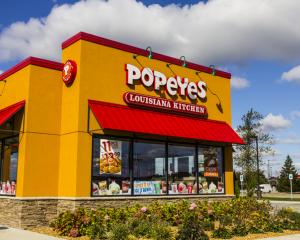
Analysts are divided on whether the OCR will fall by the end of year or remain at their present levels as 2009 starts.
Reserve Bank Governor Alan Bollard's decision yesterday to hold the OCR surprised no-one, as recent economic data reflected the rate of inflation was beyond the upper limit of the 1%-3% target range of the central bank.
"Given this outlook, we expect that the OCR will need to remain at current levels for a time yet to ensure inflation outcomes of 1% to 3% on average over the medium term,'' he said.
In a surprise move, state-owned Kiwibank cut its two-year lending rate to 9.29%, from 9.60% after yesterday's announcement, on the proviso borrowers had 20% equity in their purchase.
Other bank two-year rates are mostly around 9.60% although BNZ's rate is at 9.50%.
ASB chief economist Nick Tuffley said the key policy conclusion from Dr Bollard's announcement showed some softening, with rates expected to be on hold for "a time yet'' instead of a "significant time yet''.
"The Reserve Bank is now acknowledging that the risks to economic growth have shifted considerably since the March monetary policy statement.
"But the Reserve Bank is still very mindful of what a prolonged period of high inflation could do to inflation expectations,'' Mr Tuffley said.
Dr Bollard said economic activity had weakened and there were sharp falls in consumer and business sentiment, exacerbated by tighter credit conditions, a further decline in the housing market and weaker prospects for world growth.
However, the economic slowdown would be limited because New Zealand's labour market remained strong, key international commodity prices remained high, the Government had large spending plans and there was the possibility of personal tax cuts.
"The weaker economy will, over time, ease accumulated pressure on resources and reduce inflation pressure. However, short term inflation is likely to remain persistently high, due in large part to repeated increases in food and energy prices,'' he said.
Mr Tuffley said the Reserve Bank made a pointed reminder there is a risk that the high food and fuel prices people are experiencing translated into added wage pressure and "that inflation expectations lift and further embed high inflation''.
ASB now expected the Reserve bank to cut rates in December, rather than early 2009.













